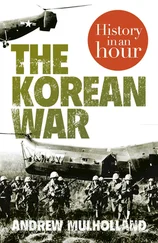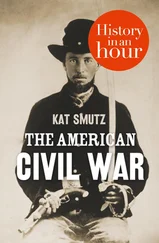Throughout history the great powers surrounding Chosun have proclaimed and guaranteed its continued freedom and independence. But none of them have truly accepted such guarantees. They dare not, because they do not trust each other.
So Korea has suffered, without profit to herself. So she is suffering still. The crimes against her have been continuous, for Korea is a breeding ground for war.
From the time of the Manchus China controlled Korea, but with a lax and distant hand. But by the nineteenth century Manchu power had decayed, and the stars of Russia and Japan were rising in the East. Collision was inevitable.
The cause of collision was not the poor land of Chosun with its teeming millions, but vast and wealthy Manchuria, looming high beyond the Yalu. Manchuria is the richest area in all East Asia, with iron ores, coal, water power, food, and timber, and whoever owns Manchuria, to be secure, must also own Chosun.
The newly awakened Empire of Japan began to put fingers of economic penetration through Chosun, inching toward Manchuria. In 1894 Japan and the Empire of China went to war, in Korea.
Near P'yongyang, the Japanese met the Chinese hordes, and defeated them. By the Treaty of Shimonoseki, signed 17 April 1895, the Manchu Empire renounced all influence in Chosun, and ceded to Japan the Island of Taiwan. The weakness of China was revealed, and the Western powers, unconcerned with the Rising Sun, gathered for what loot could be had. Russia gained forts and bases in Manchuria, and pressed down across the Yalu, seeking to control North Korea.
All powers agreed to the continuing freedom of Chosun.
Russian troops, however, garrisoned the north, while Japanese corporations began to swallow up the south. It was an uneasy situation that could not last.
In 1904 Japan and czarist Russia went to war. Japanese troops debarked at Inch'on, Korea, and marched north. They attacked across the Yalu River, and defeated Russia in a brilliant campaign. Meanwhile, the Japanese signed a treaty with Chosun, guaranteeing the Hermit Kingdom's independence, in return for the use of its territory as a base of operations.
It is the nature of peoples to see the ancient foes, and to ignore those newly arising. Japan defeated Russia with the moral and material aid of Great Britain and America, who had watched the Russian advance to the Pacific with unconcealed dread. Japan, with far greater ambitions than the rotting Empire of the Bear had ever entertained, now was the dominant power in East Asia, and America and Britain applauded.
They did not sense that, in time, Japan would overthrow the old order completely.
At the Treaty of Portsmouth, signed in New Hampshire under the good offices of President Theodore Roosevelt, Russian influence in Manchuria was checked. All powers again guaranteed the freedom of Chosun, but the treaty recognized Japan's "paramount political, military, and economic interests in Korea."
The Empire of Japan was free to move.
In the crisp, smoky early fall of 1905, the Marquis Ito was called to Tokyo. The Marquis Ito—Japan had now adopted French-style titles for its aristocracy—was not only a member of the high nobility but also one of the most capable men under the Rising Sun.
In Tokyo, the Foreign Office briefed Ito on recent events. The Tenno , the Son of Heaven, he was told, had sent a personal message to the king of Chosun, asking the king to bring his small realm into the friendly arms and great prosperity of the Rising Sun. But the king and cabinet of Chosun were most shortsighted. They did not understand that Japan must control Manchuria, or see that to exploit that province, Japan must hold a land bridge to its wealth.
In short, both king and cabinet. wanted no part of the Rising Sun. This, in itself, was sacrilege—but worse, the king had dispatched a note to the President of the United States, begging help against Japanese pressure.
The Marquis Ito, a small and dapper brown-skinned man, winced. He knew a great deal about the American President, who sometimes spoke softly, but always maintained an uncomfortably large navy.
"When will the message arrive?" he asked.
The Foreign Office, whose spies reached even into the royal gardens at Seoul, had learned the name of the ship on which the note had sailed. They could calculate the days, and there was very little time. If the White House received the note, the Chrysanthemum stood to lose much face, and worse, its immediate hopes of dominating Chosun.
The Marquis Ito was ordered to go to Seoul at once, and to do whatever must be done to retrieve the situation. If agreement with the Government of Korea, the Taehan Minkuk, could be reached prior to the delivery of the note, Roosevelt could do nothing.
The victorious Japanese Army had not yet left Korean soil, and its commander, General Hasekawa, was placed at the disposal of the Marquis Ito.
Ito went at once to Seoul. There he conferred with General Hasekawa, while awaiting audience with the Hermit King. Hasekawa suggested that he had sufficient troops in the Seoul area to settle the matter handily, if the Marquis Ito so desired. Gently, Ito explained to the bluff and honest samurai the facts of international diplomacy, and why it would not do to blow down the palace walls. But he suggested that Hasekawa march his men about for exercise and that the horse artillery indulge in target practice.
The cold winds had just begun to blow out of the north, and the brown paddies were freezing by night. Across them Hasekawa's soldiers marched singing and shouting, carrying the banner of the Rising Sun, and the artillery, horses stamping and leaving smoking droppings on the dark earth, wheeled shining field guns into place near the city's walls.
The cannon barked into the wind, sending up great gouts of black smoke. The noise crashed across the peaceful gardens and still pools of the palace grounds, shaking the leaves of the ancient gingko biloba and other venerable trees in the groves beneath Royal Mountain. It rebounded from Namdai Mun, the great South Gate of the city, to Taihan Mun, the Red Gate built in the Middle Ages.
And on the walls of ancient Seoul, seven miles long, twenty-five feet high and ten feet thick, the cabinet of Chosun gathered and watched. They were scholars of the mandarin caste, not soldiers, but even they knew that no walls of dressed stone would stand against the modern power of Dai Nippon.
But the king had written to the great Roosevelt, and they pressed him to deny the Marquis Ito's audience. The king did so. He sent word to the Japanese that he was not well, and could not leave the royal apartments.
The acting prime minister of Chosun, Han Kyu Sul, a man more brave than wise, ordered the cabinet to resist the Japanese demands for a protectorate to the death, if necessary. Han Kyu Sul was loyal to his king, but he also knew that ten years earlier a party of drunken Japanese officers under the Viscount Miura had murdered the queen, and with her, his sovereign's courage.
But the Marquis Ito understood the people of Chosun. He knew they were a peaceful race, puritan in habit, whose highest caste were not samurai, as in Europe or Japan, but scholars. He knew that Chosun had no army, and he knew, moreover, that the Koreans were the Irish of the Orient, changeable, mercurial. And he knew that a mercurial race, with its moods of alternate elation and despondency, may often be manipulated. Marquis Ito waited, while Hasekawa's men marched and Hasekawa's cannon thundered.
Finally, on 17 November 1905, he demanded that the cabinet meet with him, the king in attendance, to discuss the matter of a Japanese protectorate. He gave abrupt orders to Hasekawa, who bowed. The Koreans had been frightened enough; it was time to act.
Quietly, as dark fell on 17 November 1905, a battalion of Japanese regulars entered the city. They marched through Namdai Mun and Taihan Mun, and they entered the palace grounds. They girdled the ancient courtyards and took up positions at the gates. They lighted flaming torches, and they fixed long, glittering bayonets.
Читать дальше












